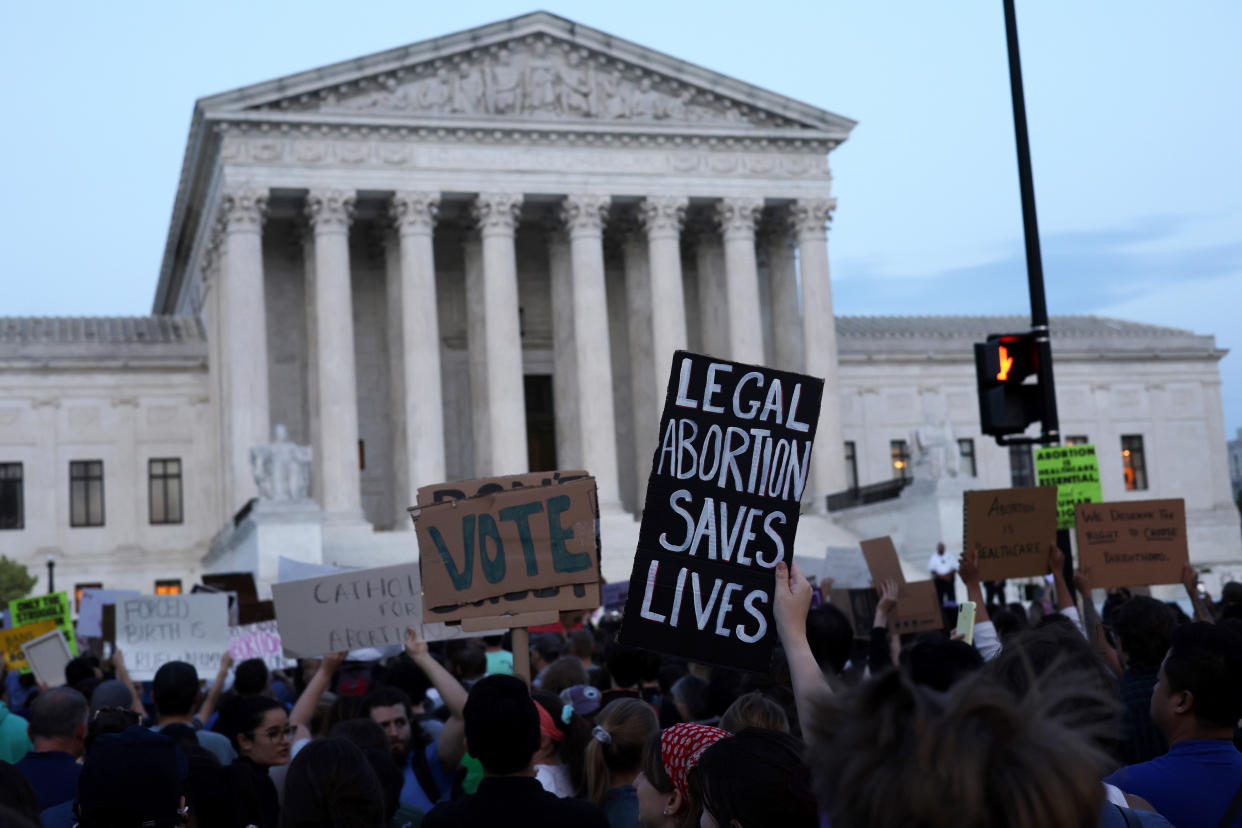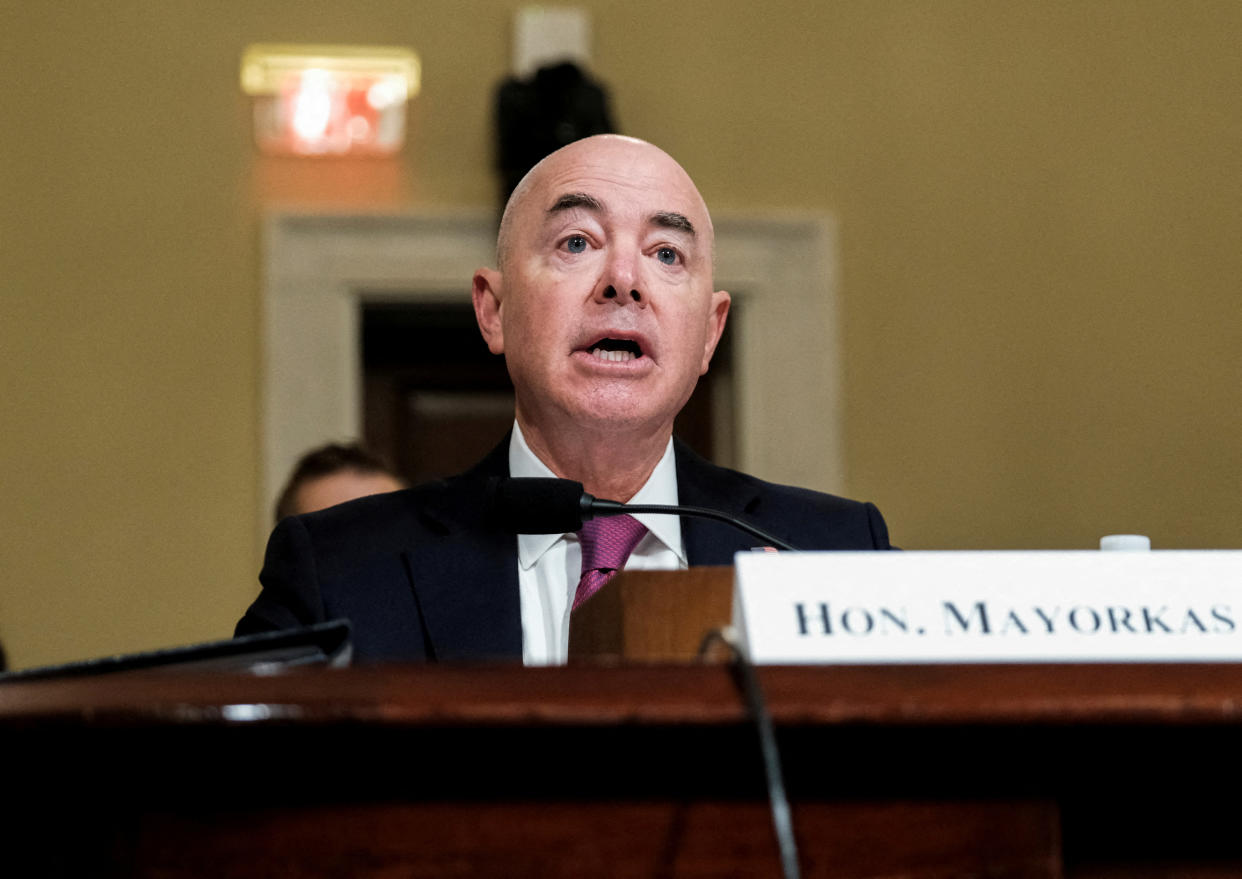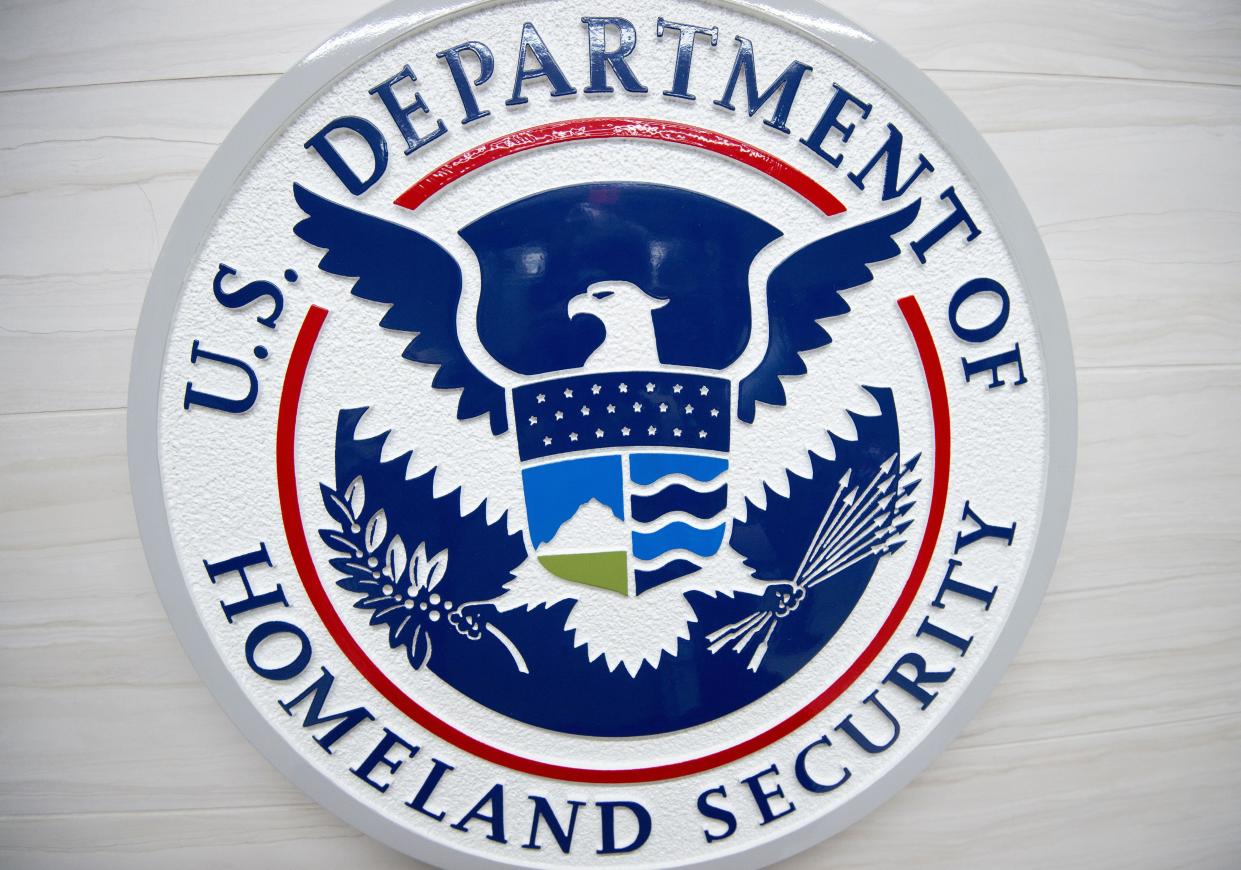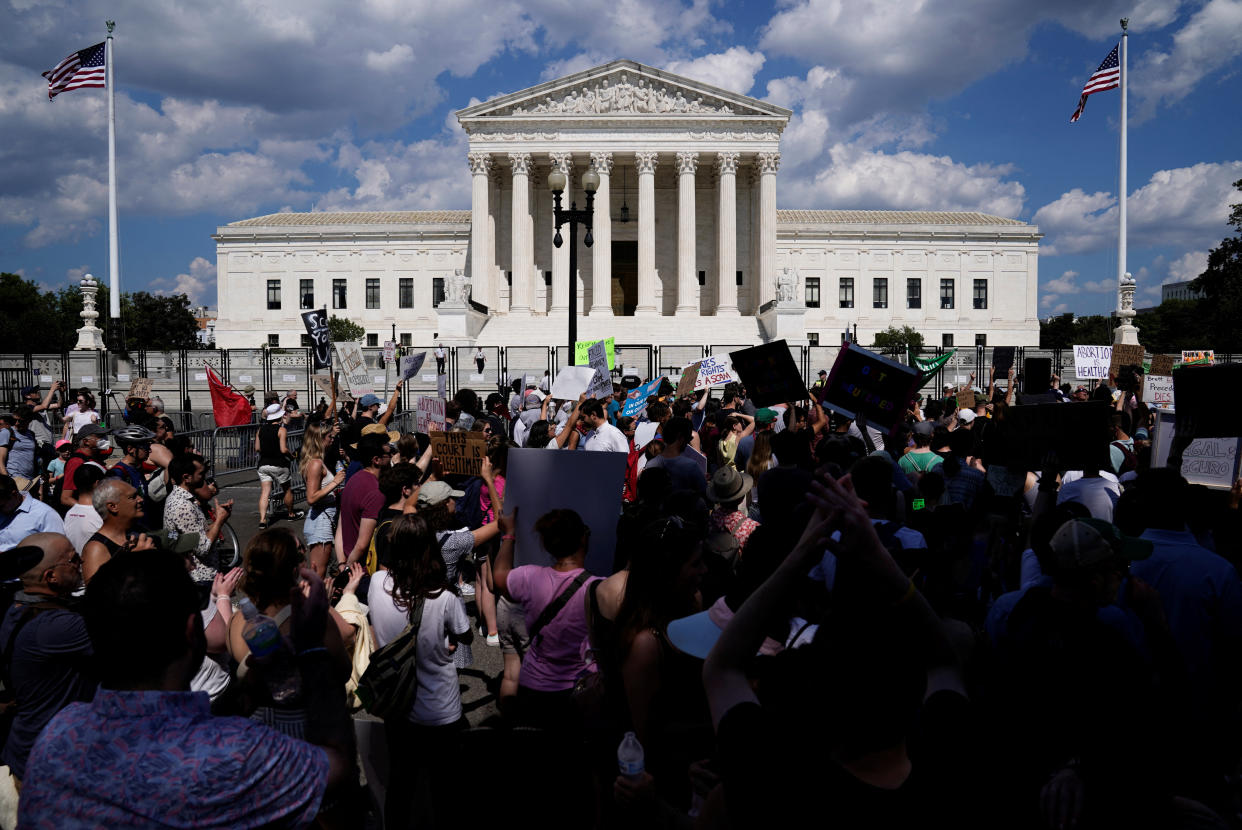DHS monitored 'social media reactions' to Roe, collected legally protected speech, bulletin shows
The Department of Homeland Security monitored “social media reactions” and “reflections” related to the Supreme Court decision that overturned Roe v. Wade, according to a DHS bulletin obtained by Yahoo News. This alarmed current and former DHS officials and civil liberties advocates, who said the agency appears to have collected speech that is protected by the First Amendment.
The June 26, 2022, document circulated days after the Roe decision was produced by the department’s Office of Intelligence and Analysis and provides updates on what each part of the office is doing in the wake of the SCOTUS decision. “[The Office of Intelligence and Analysis] will continue to monitor this event for any additional information, social media reactions, reflections, and possible threats of violence in response to this event,” it states.
A DHS official said the agency is allowed to collect online posts that would normally be considered protected speech if it determines there is a larger potential national security threat.
This comes as the department is under intense scrutiny by Congress for its social media monitoring activities, including how it tracks and collects what it determines is misinformation or disinformation.

On Tuesday, Secretary Alejandro Mayorkas stressed in his testimony before Congress that the work being done by his department followed privacy guidelines and First Amendment protections.
The monitoring of social media reactions and reflections in the wake of the Roe reversal was conducted in June, during Mayorkas’s tenure.
The bulletin also comes as the U.S. Senate released a report on DHS and FBI’s domestic terrorism response that is highly critical of DHS’s social media monitoring programs.
The report was released Wednesday by Sen. Gary Peters, D-Mich., the head of the Senate Homeland Security and Governmental Affairs Committee, which is holding a hearing Thursday at which Mayorkas will testify alongside FBI Director Chris Wray.
It calls on DHS and other agencies to “clarify and improve federal agency guidelines on the use of social media while respecting individuals’ constitutional rights."

In response to a request from Peters for more information, DHS said that it had “expanded its evaluation of online activity as part of efforts to assess and prevent acts of violence, in ways that ensure robust protections for Americans’ privacy, civil rights, and civil liberties," according to the Senate report.
But the monitoring of social media reflections and reactions appears to contradict DHS’s claims.
The report also calls on agencies to develop guidance that “must comply with protections in federal law and constitutional limitations, including the First, Fourth, and Fourteenth Amendments, and the agencies should be transparent about what data they use regarding social media.”
Civil liberties advocates said they were alarmed to learn that DHS’ Office of Intelligence and Analysis is monitoring protected speech.
“It is alarming to see that I&A intends to monitor ‘social media reactions’ to the release of the Supreme Court’s opinion overturning Roe v. Wade,” said Rachel Levinson-Waldman, managing director of the Liberty and National Security Program at the Brennan Center for Justice, who reviewed the bulletin for Yahoo News.
“The document does not disclose whose social media I&A intends to monitor, what reactions it is looking for, or what types of social media postings would warrant inclusion in a follow-up situation report,” she said. “Even if some threats are floating around in the sea of social media, searching for 'reactions' to the decision will inevitably produce a volume of sensitive information that swamps the tiny amount of relevant data, all while jeopardizing Americans’ rights to free speech and freedom of association and risking delegitimization of political discourse.”

Levinson-Waldman added that “with DHS’s nationwide audience of tens of thousands of law enforcement officers, it is unclear who will receive this U.S. Intelligence Community report and how local agencies are supposed to use reactions to current events to police their citizens."
“If this exercise of authority is justified by I&A’s oversight guidelines, it's just further proof that the guidelines authorize far too much intrusive data-gathering and that DHS has become untethered from its intended mission.”
The former head of DHS’s Office of Intelligence and Analysis told Yahoo News it’s critical that those doing this work know the difference between protected speech and a potential threat.
“Efforts to prevent acts of targeted violence benefit significantly when law enforcement or security officials evaluate content on violent extremist or other threat actor online forums,” said John Cohen, former DHS acting undersecretary of intelligence and analysis. “The challenge is that analysts must distinguish between protected speech and threat-related activity.”
DHS’s Office of Inspector General issued several reports this year detailing issues with the way the department collects open-source information, including social media posts.

On July 6, the inspector general issued a report titled, “The Office of Intelligence and Analysis Needs to Improve Its Open Source Intelligence Reporting.”
“Even after their initial training, collectors we spoke with were not certain whether, in their day-to-day operations, they adhered to privacy protections and protected speech,” it states.
The report called on the department to improve trainings for analysts who collect this kind of information, including social media posts. Mayorkas agreed with this recommendation, the report notes.
In response to questions about DHS’s monitoring of social media reactions and reflections, a DHS spokesperson emailed a statement to Yahoo News:
“The Department of Homeland Security’s Office of Intelligence and Analysis (I&A) is authorized by statute and executive order to evaluate publicly available information in support of its authorized missions and consistent with intelligence oversight guidelines approved by the Attorney General, which ensure protections for privacy, civil rights, and civil liberties,” the statement said, noting that “I&A regularly shares information with federal, state, and local law enforcement partners to prevent, protect against, or better respond to targeted violence and terrorism.”
When asked about the Senate report issued Wednesday, a DHS spokesperson told Yahoo News in an email that, “Addressing domestic violent extremism is a top priority for the Department of Homeland Security (DHS). DHS engages in a community-based approach to prevent terrorism and targeted violence, and does so in ways that protect privacy, civil rights, and civil liberties, and that adhere to all applicable laws."
Yahoo News reporter Caitlin Dickson contributed to this report.
